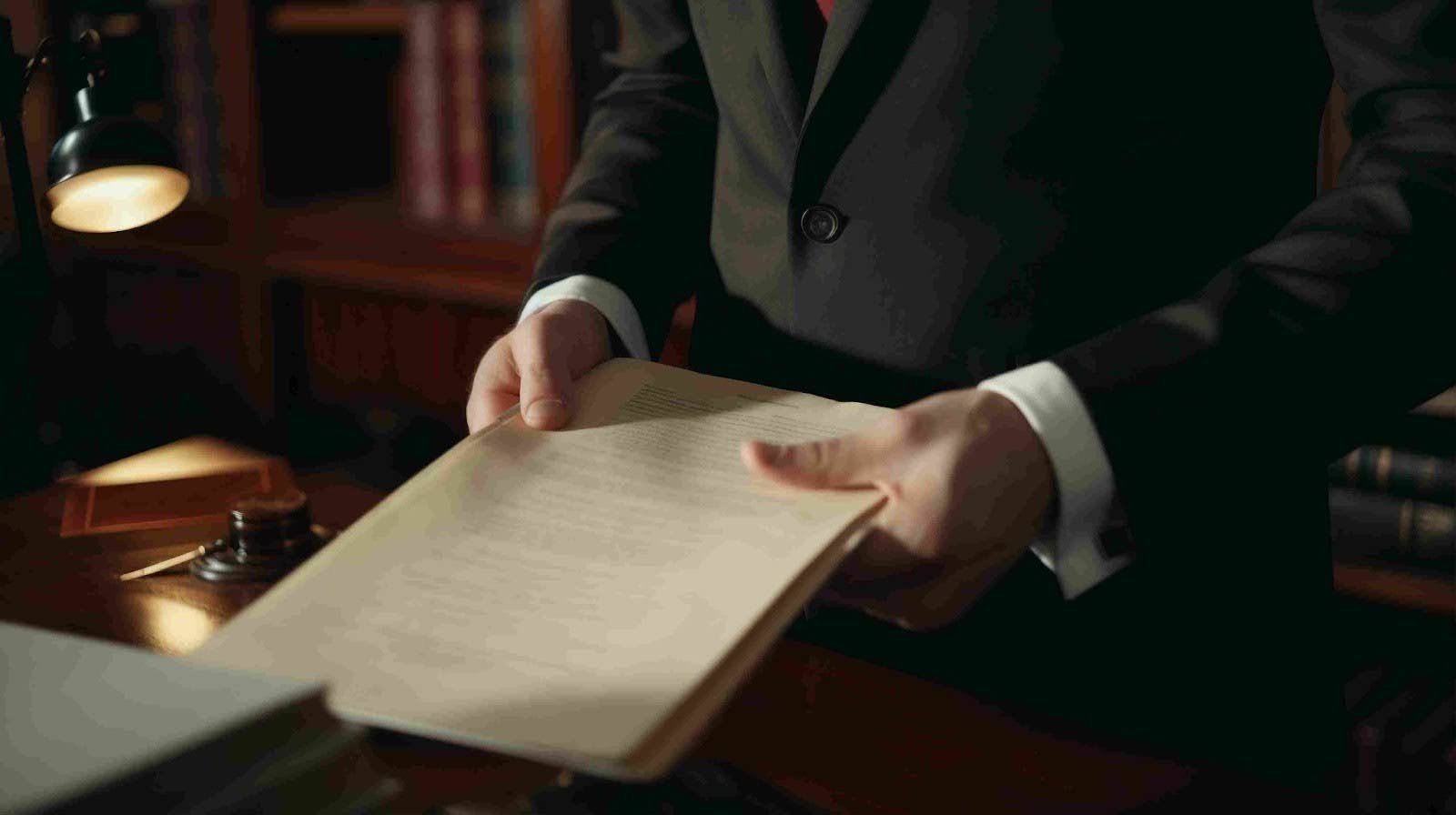
Being falsely accused of a crime is a terrifying experience no one expects to face. The thought of defending yourself against baseless claims can feel overwhelming and unfair.
But you’re not alone; there’s a clear path to protect your rights. If you’re wondering what to do if falsely accused of a crime, this blog will provide you with actionable steps to take in Singapore.
From staying calm to engaging the best legal experts, knowing the right approach can make all the difference. At Tembusu Law, we’re here to help you navigate this tough time with trusted advice and experienced representation. Let’s dive into what you need to know to take control of your situation.
1. Remain Silent And Exercise Your Legal Rights
What if you are falsely accused of a crime and questioned by the authorities? It’s crucial to understand that you have the right to remain silent. This doesn’t mean you’re being uncooperative—it’s about protecting yourself from saying anything that might be misinterpreted or used against you.
You may feel the urge to explain or defend yourself immediately when confronted. However, anything you say can become part of the investigation. By staying silent and calmly informing the authorities that you wish to speak with a lawyer, you give yourself the best chance to build a strong and well-prepared defence.
Exercising this right ensures you don’t unintentionally weaken your case. It’s a legal safeguard, particularly in Singapore’s justice system, where your words can carry significant weight in investigations and Court proceedings.
2. Engage An Experienced Criminal Lawyer
If you’re wondering what to do if falsely accused of a crime, one of the most important steps you can take is to hire the best criminal lawyer in Singapore. The legal system in Singapore is complex, and navigating it without professional guidance can lead to unnecessary risks. An experienced lawyer serves as your advocate, ensuring your rights are protected, and your defence is strong.
A lawyer will:
- Advise You On Legal Rights: They’ll explain your rights, including when to remain silent, how to respond to police inquiries, and what steps to take next.
- Represent You In Court: If the case proceeds to Court, your lawyer will present evidence, cross-examine witnesses, and argue on your behalf.
- Prepare A Defence Strategy: They’ll thoroughly analyse the accusations, gather evidence, and build a strategy tailored to your case.
- Negotiate With Authorities: Sometimes, a lawyer can negotiate with the police or prosecutor to resolve the matter without a trial.
- Provide Emotional Support And Clarity: Being falsely accused is stressful, and a lawyer can offer reassurance while helping you focus on what’s important.

3. Provide Evidence Of Your Innocence
When you’re faced with false accusations, providing evidence to prove your innocence is one of the most effective legal steps you can take. Under Singapore law, the burden of proof lies with the prosecution. However, having strong evidence to refute the accusations can significantly strengthen your defence and expedite the case resolution.
Here’s how you can approach this step:
Document Relevant Details
Start by documenting everything related to the incident in question. Write down your version of events, including dates, times, locations, and the people involved. These details can help you recall key facts during investigations or when working with your lawyer.
Gather Supporting Evidence
Collect any tangible evidence that supports your innocence. This may include:
- Electronic Records: Emails, text messages, or call logs contradicting accusations.
- Photos Or Videos: Visual evidence that proves your whereabouts or disproves the accuser’s claims.
- Receipts Or Documents: Proof of transactions or activities that confirm your location or actions.
Identify Witnesses
Witnesses play a crucial role in Singapore’s legal system. If anyone was present during the alleged incident or can vouch for your character, their testimony could be invaluable. Share their details with your lawyer, who will contact and prepare them for potential statements.
4. File A Police Report If Necessary
When false accusations are malicious or defamatory, filing a police report may be an appropriate legal action. This step is particularly relevant in Singapore, where making a false statement or lodging a false report can result in criminal charges under the Penal Code. Knowing what to do if you’re falsely accused of a crime involves defending yourself and holding the accuser accountable if they acted maliciously.
When Should You File A Police Report?
Filing a police report is necessary if:
- You have clear evidence that the accusations were made with malicious intent.
- The false claims are harming your reputation, personal relationships, or livelihood.
- The accuser’s actions violate Singapore laws, such as defamation or filing a false report under Section 182 of the Penal Code, which criminalises the act of knowingly providing false information to a public servant.
5. Cooperate With Investigations Through Your Lawyer
In Singapore, police investigations aim to uncover the truth and gather evidence to determine whether charges should be brought against you. By cooperating, you demonstrate a willingness to assist the process and maintain transparency, which reflects positively on your character. However, this cooperation must be carefully managed to avoid unintentionally incriminating yourself.
How To Cooperate Effectively
- Respond To Police Summons Promptly
If the police contact you for questioning, attend the session as required. Ignoring a summons can lead to further complications or even additional charges for non-compliance. - Have Your Lawyer Present During Questioning
Always consult your lawyer before speaking to the authorities. Under Singapore law, you have the right to legal representation during police questioning. Your lawyer will ensure that the questioning is conducted fairly and that you do not inadvertently say something that could be misinterpreted. - Be Honest And Consistent
Provide truthful information and maintain consistency in your statements. Any discrepancies can be used against you in Court. However, avoid volunteering unnecessary details—stick to answering questions directly and succinctly, as your lawyer advises. - Submit Evidence Through Your Lawyer
If you have evidence that supports your innocence, work with your lawyer to present it in an organised and legally appropriate manner. This ensures that the evidence is considered seriously and handled properly. - Avoid Speculation Or Accusations
During the investigation, do not speculate about the motives of your accuser or accuse them without solid proof. Let your lawyer guide the narrative and focus on presenting your innocence instead of attacking the other party.

6. Avoid Public Discussions About The Case
When falsely accused of a crime, staying silent about the details of your case in public forums, including social media, is one of the most important legal precautions you can take. Singapore law takes the misuse of communication platforms seriously, and any statements you make could inadvertently harm your defence. Knowing what to say—and what to avoid—can make a significant difference in how your case unfolds.
Why Public Discussions Can Be Harmful
- Risk Of Misinterpretation:
Even innocent comments about your situation can be taken out of context and used against you during investigations or in Court. - Compromising Evidence:
Sharing information publicly might unintentionally reveal key details about your defence strategy, giving the accuser an advantage. - Social Media As Evidence:
Social media posts and public statements in Singapore are admissible as evidence in Court. This means investigators or prosecutors could scrutinise any online activity related to your case.
Practical Steps To Avoid Public Discussion
- Refrain From Posting On Social Media:
Avoid commenting on or sharing any details about your case online. This includes posts about your feelings regarding the accusation, interactions with the accuser, or even updates on the case. - Limit Conversations To Trusted Parties:
Only discuss your case with your lawyer and individuals directly involved in your defence, such as witnesses or family members providing support. - Direct Media Inquiries To Your Lawyer:
If journalists or media outlets approach you for comments, politely decline and direct them to your lawyer. A professional statement crafted by your lawyer ensures the narrative remains controlled and legally sound. - Do Not Respond To Public Allegations:
If your accuser or others make statements about the case online or in public, resist the urge to respond. Instead, document and share such actions with your lawyer, who can determine if legal action is warranted.
Conclusion About Things To Do When Falsely Accused Of A Crime
Being falsely accused of a crime can feel like your world is falling apart, but you don’t have to face it alone. Knowing what to do if you’re falsely accused of a crime and taking the right legal actions can make all the difference.
At Tembusu Law, our experienced team of criminal lawyers in Singapore is here to stand by you every step of the way. Whether building a robust defence or navigating the complexities of the legal system, we’ll ensure your rights are protected and your voice is heard.
Don’t let false accusations define your future. Contact us today for a free consultation, and let us guide you toward justice with the expertise of the criminal defence in Singapore.
Frequently Asked Questions About Being Falsely Accused Of A Crime
What If You Are Falsely Accused Of A Crime But Have No Evidence?
Speak to witnesses and consult a lawyer for advice on gathering supporting information.
How Long Does It Take To Resolve A False Accusation Case?
The timeline varies depending on the complexity of the case and investigations.
Do I Need A Lawyer If I’m Innocent?
Yes, a lawyer protects your rights and helps build a strong defence.
Can Social Media Posts Be Used As Evidence Against Me?
Yes, public comments may be used in Court, so avoid discussing the case online.